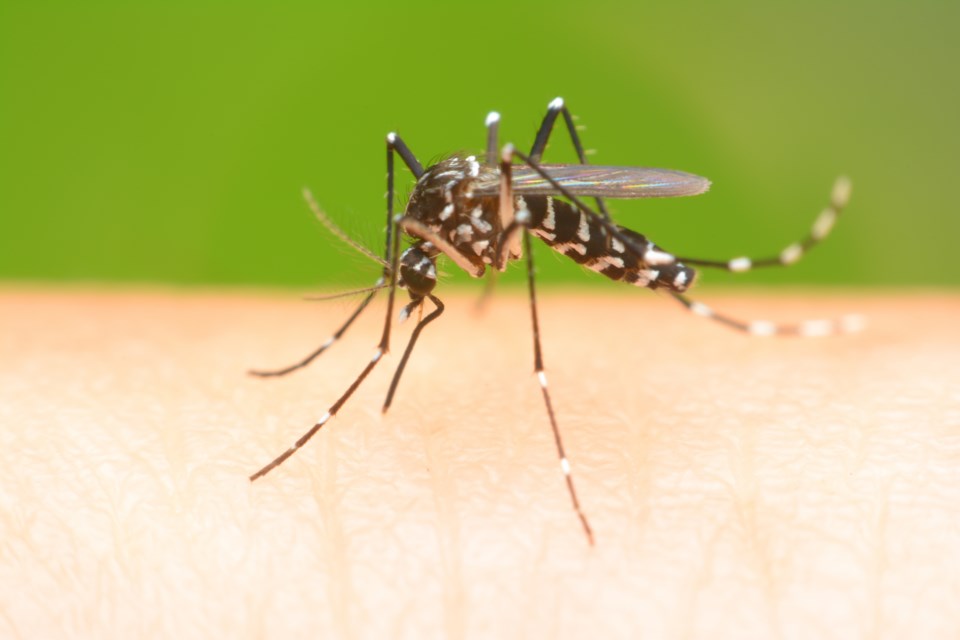Contractor Vector Disease Control International will be spraying for mosquitoes, weather permitting, in Longmont on Thursday night.
The spraying was announced Tuesday, the day after Boulder County announced that mosquitoes in Superior, Louisville, and Longmont tested positive for West Nile virus. The positive mosquito pools came from traps near Izaak Walton Park and St. Vrain Greenway in Longmont, Coal Creek Golf Course and Coal Creek Trail in Louisville, and Original Town in Superior, according to a news release.
Thursday’s spraying will take place in five of 12 Longmont “hotspot zones:”
-
Jim Hamm Nature Area
-
Longmont Union Reservoir
-
Great Western/Mill Village
-
Longmont Meadow View
-
Rough and Ready Park
A map of the boundaries of predetermined spray areas can be viewed on the West Nile Virus webpage at LongmontColorado.gov/westnile.
Notice of spraying is posted Tuesdays at LongmontColorado.gov/westnile. Residents also can sign up to be alerted when spraying will take place by using the city’s eNotification subscription page.
Vector Disease Control International uses ultra-low volume fogging equipment and sprays after dusk when the majority of mosquito species are most active, according to the city. Use of the least-toxic products possible and calibrated application timing aim to minimize non-target impacts of spraying, according to the city.
Longmont residents can request notifications and shutoffs when spraying is planned near their properties by calling Vector Disease Control at 970-278-9977 or visiting vdci.net/colorado. Three options are available: To receive a call before spraying takes place; to have the spray machine shut off when it passes their property, or to receive notification and have the machine shut off as it passes.
West Nile virus is transmitted to humans from the bite of an infected mosquito. While most infections are mild, more serious infections can cause encephalitis (inflammation of the brain) and/or meningitis (inflammation of the brain's lining), loss of vision, paralysis, coma, tremors, convulsions, and death, according to the Boulder County release. Symptoms of West Nile include fever, extreme fatigue, headache, body aches, and also can include skin rashes and swollen lymph nodes. Public Health advised anyone who experiences to consult their health care provider. Generally, symptoms appear three to 14 days after being bitten by an infected mosquito, according to the county.
There is no treatment, cure or human vaccination for the virus, but symptoms can be treated to help patients feel better and possibly recover more quickly, according to the county.
To protect themselves from West Nile virus, Boulder County Public Health officials urge residents to observe the 4Ds:
-
Use DEET-enhanced insect repellent or alternatives, including Bite Blocker, Picaridin, Oil of Lemon Eucalyptus, or IR3535.
-
Dress in long sleeves and pants.
-
Avoid the outdoors from dusk until dawn.
-
Drain standing water outside of homes.
Mosquito season generally lasts from late April until mid-October and typically ends with the first freeze in the fall, according to the county. No Boulder County residents have tested positive for West Nile virus this season, but one human case has been reported in Colorado, according to state data, which is available here.
For more information about West Nile virus and mosquito activity in Boulder County, visit BoulderCountyMosquito.net.
For more information about Longmont’s integrated pest management program and how to protect against West Nile virus, visit LongmontColorado.gov/westnile or call 303-651-8416.


